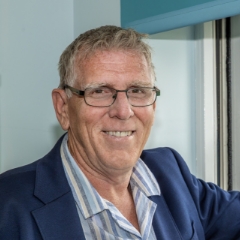Who we are

Iceni was created in 1998 based on the founding principle of treating the underlying causes of substance misuse and abuse rather than the symptoms. Initially ground-breaking and innovative, 25 years later it is still our founding principle. We have continued to grow into a team with a remarkable depth and diversity of skills appropriate to the needs of families within Suffolk.
Our team holds empathy and compassion for the people we work with and understand that problematic substance misuse is not a life choice, and that sometimes people can unintentionally cause harm.
We work with both parents and children, using a range of interventions delivered by an experienced and qualified team who have a passion for fairness, social justice and the process of change. We are proud to be inclusive and respectful of everybody, no matter who they are or what their background is.
Meet the team


The philosophy that Brian introduced to Iceni was: “To not judge a person by their past if they are making an honest attempt to change.” Under Brian’s leadership, the team at Iceni demonstrate hope, understanding and a non-judgemental approach to those who struggle with difficulties that are often misunderstood and misjudged more widely. He founded Iceni in 1997 with Patrick Palmer and in 2019, Brian was awarded an MBE for his services to drug rehabilitation in Suffolk.
Jo is the Complementary Therapy Lead and a Family Practitioner. Her main role is Acupuncture Therapist and works with a large percentage of the families attending Iceni. Jo trained with the Yuan TMC and is a trainer for NADA GB and Yuan TMC in Auricular Acupuncture Therapy.
Natalie has a degree in psychology and early childhood studies which lead to her masters in play therapy, which is her main role at Iceni. She facilitates the Child Parent Relationship Therapy (CPRT) group, and Natalie also heads up the Diversity Steering Group and is our communications and marketing lead. BAPT Registered. CPRT trained.
Alison joins the VENTA Team, after 18 years with the National Probation Service. She graduated with a BA in Community and Criminal Justice and has also since gained a Diploma in Counselling Skills. She is passionate about supporting individuals wanting to change their harmful behaviours within intimate relationships and is key in promoting the visibility of Iceni as an agency which is freely accessible to all.
Suzanne has a degree in social work and she is eager to transfer the knowledge and experience she has gained in local authority to support parents at Iceni in a therapeutic, non-oppressive and family-oriented way. Suzanne is a Family Practitioner, domestic abuse champion, and a facilitator for My Stronger self-group. She is passionate about supporting parents to overcome obstacles and be the parents that they would like to be.
Emma is a Co-Facilitator for the Venta Programme at Iceni after many years’ experience working with people struggling with substance misuse and borderline personality disorder. Emma is a qualified BACP (British Association of Counselling and Psychotherapy) registered Integrative Counsellor and Graduate Member of the British Psychological Society (GMBPsS). She has degrees in biomedical science, psychology and an FDA in counselling.
An experienced UKCP accredited therapist and supervisor, Glenn took the lead in the development and facilitation of the pioneering Venta programme and also facilitates the REALationships programme at Iceni.
Tracey is the Data Administrator working with us at Iceni for nine years and keeps a very high standard of organising behind the scenes. She is often the welcoming face in the office for people who access our support.
James is a qualified psychotherapist with a BA Hons degree in Integrative Counselling and Psychotherapy (BACP registered member). He also has an NVQ level 3 in health and social care. James offers 1-1 counselling and facilitates the Re-Inventa group offering ongoing therapeutic peer support for men who have completed Venta.
Nicole is our operational manager at ICENI as well as one of our family practitioners. She is our Venta partner link worker offering support to people who have been in harmful relationships.
Nicole also offers acupuncture and is our first point of call for referrals. Nicole has a degree in psychology and criminology.
Simon qualified as a social worker in 2008. He has worked in child protection teams in Suffolk and has worked at Iceni for 13 years. Simon runs our Triple P parenting programme alongside his main role as a family practitioner and safeguarding lead.
Pauline is our HR manager, head of admin and office duties and is basically the go-to women for anything we need at work! She has worked here for eight years and we are thankful to have her empathetic voice as the first point of call for people getting in touch with Iceni.
Michelle is Iceni’s Family Therapist supporting families to repair after ruptures addiction can trigger, specifically teenage and parent relations. Additionally, she co-facilitates the Boudica programme aiding those impacted by domestic violence to find safe connection through shared experiences and the promise of healing. Michelle has a BSc Psychology, MSc Psychodynamic and Cognitive Behavioural Therapy and trained in both the UK and USA in a variety of child and family therapy approaches.
Sally is a Counsellor and Family Practitioner. She holds a BSc (Hons) in Integrative Counselling and is a registered member of the British Association for Counselling and Psychotherapy (MBACP). Sally is the lead for Psychological Therapies and is part of the team delivering the new Boudica programme.
John has been our Finance Officer since 2010 and oversees the day-to-day accounting function. He is responsible for regular reporting to the trustees and for drawing up the annual accounts. He assists with grant and tender applications and enjoys banana bread.
Our Trustees
Laurence is an interim manager with a history of senior leadership and technology roles. He has been a trustee since 2012 and helps with funding bids, strategy and building the capability of Iceni.
Toby is a solicitor with a law firm located in Ipswich. He has been a trustee of Iceni since 2020 and has provided legal assistance on the rare occasions that this is required.
Inga met Brian Tobin shortly after she was first elected as an Ipswich borough councillor in 1999 when Iceni was setting up. Inga has been a trustee ever since those early days for the charity. She was elected as county councillor in 200I and has served as councillor to both authorities ever since. Inga was born in Denmark but has lived in the UK from 1979.
Health and social care has been a major concern for Inga through her public career and the contribution that Iceni has made in supporting families affected by drug addiction and dependency continues to be very important to her. Through its work it has never lost sight of the vital importance of supporting children growing up in families struggling with drug-related issues.
Liz has been a trustee with Iceni since 2020.
She is a health visitor and has attended many safeguarding meeting with families at Iceni. She has also referred her clients to Iceni for help and support.
Alex qualified as a chartered accountant after leaving university and the worked for over 20 years in financial services in London. For the last 20 years he has been a non executive director of a number of companies and a trustee of 12 charities. He lives outside Ipswich and first met Iceni through his wife who is a magistrate. He became a trustee in 2007 and chair in 2008 and is a huge supporter of everything that Iceni does in the community.
David has been a GP in Ipswich for 29 years and continues to work in a local practice. He has been a trustee at Iceni since 2022. He brings to the table his years of experience working in the NHS and caring for patients’ mental health problems.
